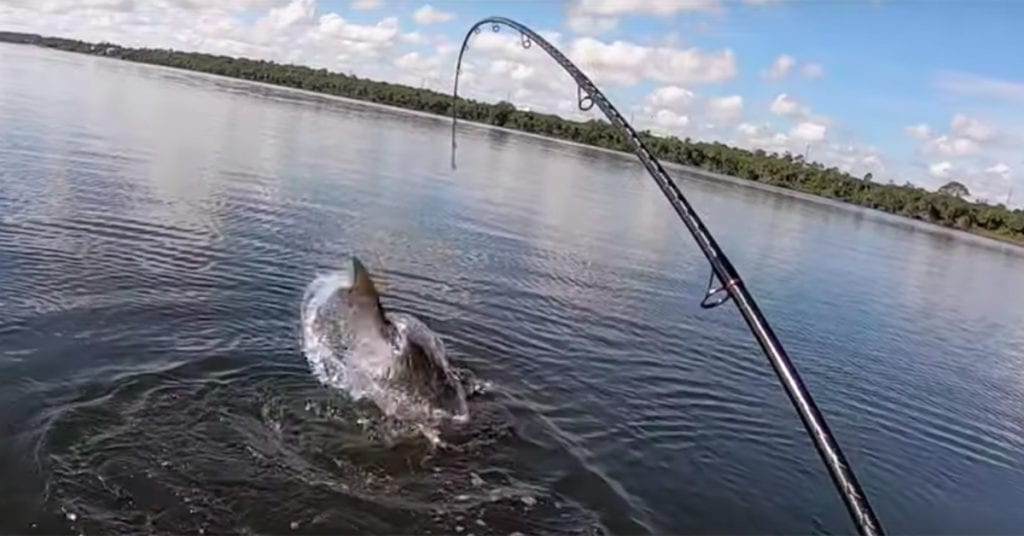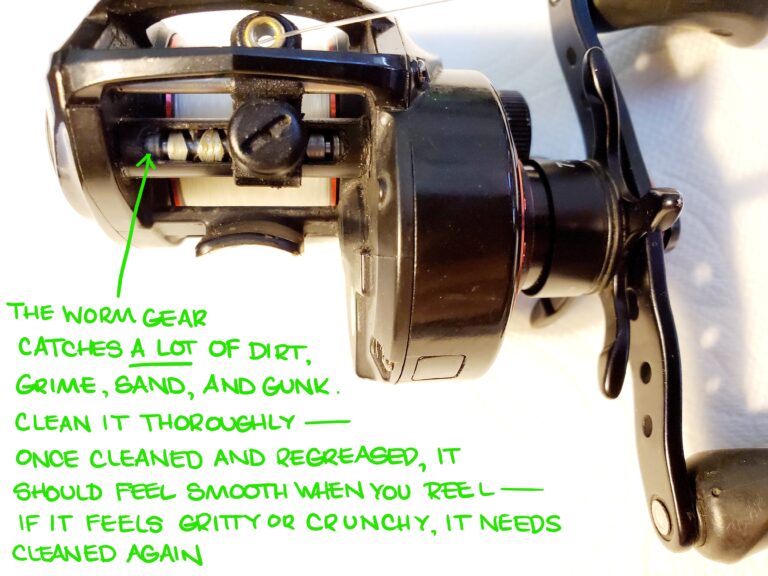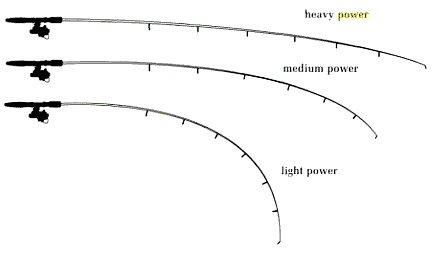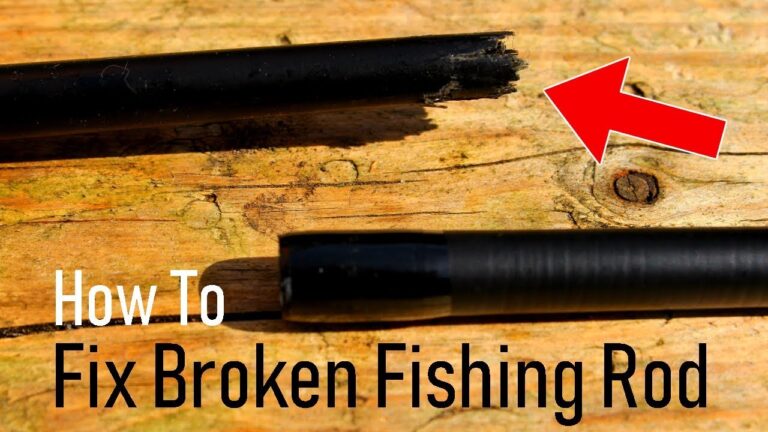Can You Use a Freshwater Rod in Saltwater
Yes, you can use a freshwater rod in saltwater, but its durability may suffer. Freshwater rods are not designed for the corrosive nature of saltwater.
Embarking on a fishing adventure requires the right equipment, and choosing the appropriate fishing rod is paramount for a successful outing. Whether you’re a seasoned angler or a novice fisherman, understanding the difference between freshwater and saltwater gear is crucial.
Saltwater environments tend to be harsher on equipment due to the corrosive properties of salt, which can lead to quicker deterioration of a freshwater rod. Such rods may not withstand the larger species typically found in ocean waters. Selecting a rod with the resilience to handle these conditions is vital to both your success and the longevity of your gear. Transitioning from a serene lake to the vast ocean invites the challenge of adapting equipment to meet the demands of varied aquatic realms.

Credit: www.saltstrong.com
Freshwater Vs Saltwater Fishing Gear
Freshwater gear and saltwater gear differ in materials used. Saltwater environments are harsh and can damage freshwater equipment. Freshwater rods are often not as robust because freshwater conditions are more forgiving.
Materials like aluminum and stainless steel are common in saltwater gear. These materials resist corrosion better than ones found in freshwater gear. Many freshwater rods lack this essential protection against the saltwater elements.
Corrosion is a big problem when using freshwater rods in saltwater. Saltwater quickly corrodes materials not designed for it. Freshwater rods may break faster when used frequently in saltwater. Careful rinsing with fresh water after use is vital for longevity if used in saltwater.
Impact Of Saltwater On Freshwater Rods
Saltwater poses unique challenges to freshwater rods. The corrosive nature of saltwater can quickly damage a rod not designed for such conditions. Freshwater rods may succumb to wear and tear more rapidly. Reel seats, guides, and handles are especially susceptible to corrosion.
For durability, consider the material of your freshwater rod. Rods made with corrosion-resistant materials will fare better in saltwater. Yet, they still require thorough cleaning after use. Frequent exposure without proper care significantly shortens a rod’s lifespan. Rinsing gear with fresh water after each use is essential.
Adapting Freshwater Rods For Saltwater Use
Using a freshwater rod in saltwater is possible. Yet, specific protective measures are crucial. A saltwater environment can damage your rod without proper care. Applying a corrosion-resistant spray on your rod helps protect it. Always rinse your gear with fresh water after use. This reduces the risk of salt buildup.
Maintenance is key to prolong the rod’s life. Here are some tips:
- Thoroughly clean all components after each trip.
- Inspect regularly for signs of wear and corrosion.
- Lubricate moving parts to ensure smooth action.
- Store in a cool, dry place away from direct sunlight.
These steps will extend your freshwater rod’s usability in saltwater. Always stay diligent with care and maintenance.
Performance Considerations
Freshwater rods differ from saltwater rods in various aspects. Power and action are critical factors to consider. Moving to saltwater fishing often demands a heavier and sturdier rod. This change handles larger species and withstands the corrosive nature of saltwater.
Choosing a rod with the right power means better control over the catch. Rod action affects casting ability and sensitivity. Fast-action rods bend mostly near the tip. Slow-action rods bend closer to the handle. Matching the action to the fishing style is essential.
| Saltwater Species | Recommended Power | Recommended Action |
|---|---|---|
| Small Fish | Medium | Fast to Medium |
| Medium Fish | Medium to Heavy | Medium |
| Large Fish | Heavy to Extra-Heavy | Slow to Medium |
Alternatives To Using Freshwater Rods In Saltwater
Investing in versatile equipment can save both time and money. Saltwater fishing demands gear that withstands corrosion and rougher conditions. Many anglers opt for rods that function well in both environments. A good all-around rod should be durable, with higher corrosion resistance and strength. This means fewer worries about gear failure. It’s best to choose rods labeled as suitable for both fresh and saltwater.
Moving on to specialized saltwater rods, certain benefits become clear. These rods are designed to tackle large saltwater species. They exhibit extra toughness against the relentless sea environment. High-grade materials provide the upper hand when battling strong ocean currents and big game fish. Thus, anglers often invest in these specialized tools for targeted saltwater adventure.

Credit: www.fishsafe.info

Credit: m.youtube.com
Frequently Asked Questions On Can You Use A Freshwater Rod In Saltwater
Do You Need A Special Rod For Saltwater Fishing?
Yes, you need a special rod for saltwater fishing, designed to withstand corrosive saltwater and larger fish.
What Is The Difference Between A Saltwater Rod And A Freshwater Rod?
Saltwater rods are typically more robust to withstand corrosive saltwater and larger fish species. Freshwater rods are generally lighter, for precision when targeting smaller freshwater fish.
Can I Use Freshwater Reel In Saltwater?
Yes, you can use a freshwater reel in saltwater, but it may corrode faster. Rinse it thoroughly with fresh water after each use to prolong its lifespan.
Can You Use Freshwater Tackle In Saltwater?
Yes, you can use freshwater tackle in saltwater, but it requires thorough cleaning afterwards to prevent corrosion. Opt for corrosion-resistant materials if frequently fishing in saltwater to ensure tackle longevity.
Conclusion
Wrapping up, choosing the right gear matters immensely for angling success and gear longevity. A freshwater rod can suffice occasionally in saltwater, but it’s not ideal. For enthusiasts aiming to preserve their equipment and enhance their catch, investing in saltwater-specific rods is a wise decision.
Happy fishing!



